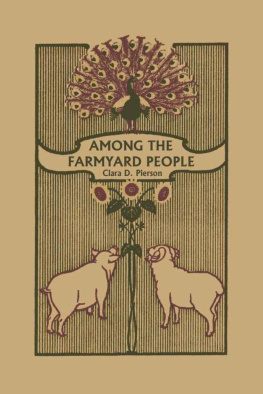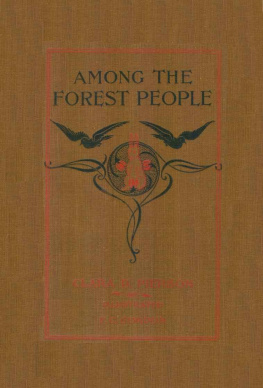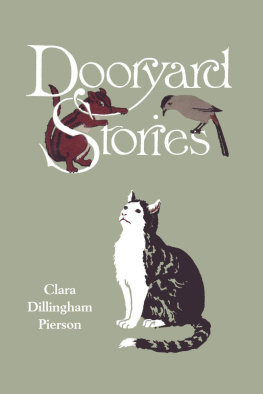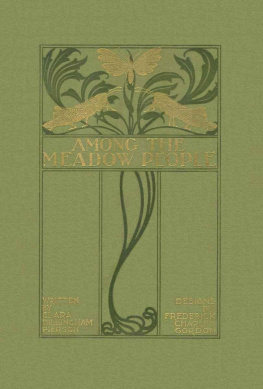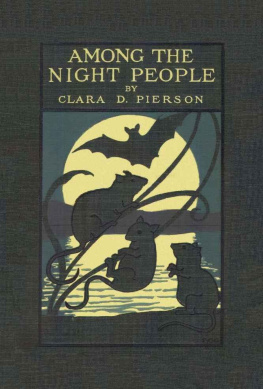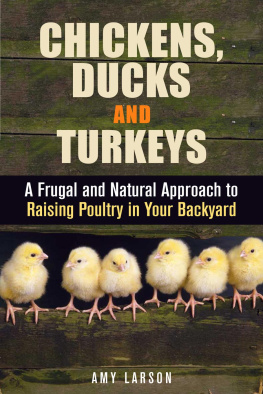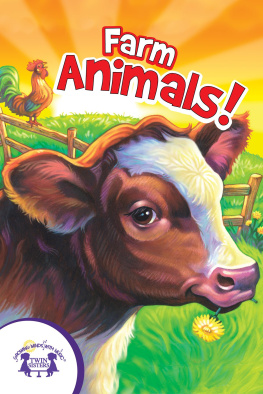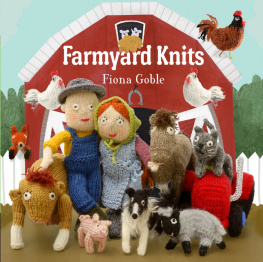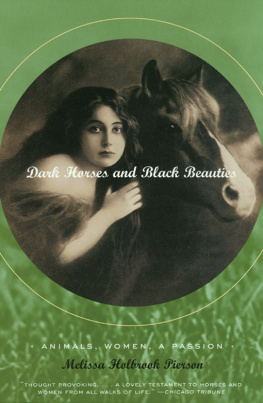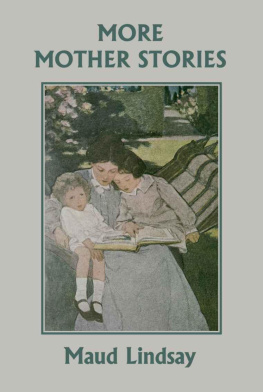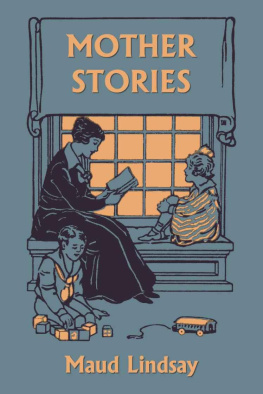Among the Farmyard People
by
Clara Dillingham Pierson
Yesterday's Classics
Chapel Hill, North Carolina
Cover and Arrangement 2010 Yesterday's Classics, LLC
All rights reserved. No part of this book may be reproduced or retransmitted in any form or by any means without the written permission of the publisher.
This edition, first published in 2010 by Yesterday's Classics, an imprint of Yesterday's Classics, LLC, is an unabridged republication of the work originally published by E. P. Dutton and Company in 1899. This title is available in a print edition (ISBN 978-1-59915-281-3).
Yesterday's Classics, LLC
PO Box 3418
Chapel Hill, NC 27515
Yesterday's Classics
Yesterday's Classics republishes classic books for children from the golden age of children's literature, the era from 1880 to 1920. Many of our titles are offered in high-quality paperback editions, with text cast in modern easy-to-read type for today's readers. The illustrations from the original volumes are included except in those few cases where the quality of the original images is too low to make their reproduction feasible. Unless specified otherwise, color illustrations in the original volumes are rendered in black and white in our print editions.
To the Children
Dear Little Friends:
I want to introduce the farmyard people to you, and to have you call upon them and become better acquainted as soon as you can. Some of them are working for us, and we surely should know them. Perhaps, too, some of us are working for them, since that is the way in this delightful world of ours, and one of the happiest parts of life is helping and being helped.
It is so in the farmyard, and although there is not much work that the people there can do for each other, there are many kind things to be said, and even the Lame Duckling found that he could make the Blind Horse happy when he tried. It is there as it is everywhere else, and I sometimes think that although the farmyard people do not look like us or talk like us, they are not so very different after all. If you had seen the little Chicken who wouldn't eat gravel when his mother was reproving him, you could not have helped knowing his thoughts even if you did not understand a word of the Chicken language. He was thinking, "I don't care! I don't care a bit! So now!" That was long since, for he was a Chicken when I was a little girl, and both of us grew up some time ago. I think I have always been more sorry for him because when he was learning to eat gravel I was learning to eat some things which I did not like; and so, you see, I knew exactly how he felt. But it was not until afterwards that I found out how his mother felt.
That is one of the stories which I have been keeping a long time for you, and the Chicken was a particular friend of mine. I knew him better than I did some of his neighbors; yet they were all pleasant acquaintances, and if I did not see some of these things happen with my own eyes, it is just because I was not in the farmyard at the right time. There are many other tales I should like to tell you about them, but one mustn't make the book too fat and heavy for your hands to hold, so I will send you these and keep the rest.
Many stories might be told about our neighbors who live out-of-doors, and they are stories that ought to be told, too, for there are still boys and girls who do not know that animals think and talk and work, and love their babies, and help each other when in trouble. I knew one boy who really thought it was not wrong to steal newly built birds'-nests, and I have seen girlsquite large ones, toowho were afraid of Mice! It was only last winter that a Quail came to my front door, during the very cold weather, and snuggled down into the warmest corner he could find. I fed him, and he stayed there for several days, and I know, and you know, perfectly well that although he did not say it in so many words, he came to remind me that I had not yet told you a Quail story. And two of my little neighbors brought ten Polliwogs to spend the day with me, so I promised then and there that the next book should be about pond people and have a Polliwog story in it.
And now, good-bye! Perhaps some of you will write me about your visits to the farmyard. I hope you will enjoy them very much, but be sure you don't wear red dresses or caps when you call on the Turkey Gobbler.
Your friend,
C LARA D ILLINGHAM P IERSON.
STANTON, MICHIGAN,
March 28, 1899.
Contents
The Story That the Swallow Didn't Tell
"L ISTEN!" said the Nigh Ox, "don't you hear some friends coming?"
The Off Ox raised his head from the grass and stopped to brush away a Fly, for you never could hurry either of the brothers. "I don't hear any footfalls," said he.
"You should listen for wings, not feet," said the Nigh Ox, "and for voices, too."
Even as he spoke there floated down from the clear air overhead a soft "tit-tle-ittle-ittle-ee," as though some birds were laughing for happiness. There was not a cloud in the sky, and the meadow was covered with thousands and thousands of green grass blades each so small and tender and yet together making a most beautiful carpet for the feet of the farmyard people, and offering them sweet and juicy food after their winter fare of hay and grain. Truly it was a day to make one laugh aloud for joy. The alder tassels fluttered and danced in the spring breeze while the smallest and shyest of the willow pussies crept from their little brown houses on the branches to grow in the sunshine.
"Tittle-ittle-ittle-ee! Tittle-ittle-ittle-ee!" And this time it was louder and clearer than before.
"The Swallows!" cried the Oxen to each other. Then they straightened their strong necks and bellowed to the Horses, who were drawing the plow in the field beyond, "The Swallows are coming!"
THE SWALLOWS ARE COMING
As soon as the Horses reached the end of the furrow and could rest a minute, they tossed their heads and whinnied with delight. Then they looked around at the farmer, and wished that he knew enough of the farmyard language to understand what they wanted to tell him. They knew he would be glad to hear of their friends' return, for had they not seen him pick up a young Swallow one day and put him in a safer place?
"Tittle-ittle-ittle-ee!" and there was a sudden darkening of the sky above their heads, a whirr of many wings, a chattering and laughing of soft voices, and the Swallows had come. Perched on the ridge-pole of the big barn, they rested and visited and heard all the news.
The Doves were there, walking up and down the sloping sides of the roof and cooing to each other about the simple things of every-day life. You know the Doves stay at home all winter, and so it makes a great change when their neighbors, the Swallows, return. They are firm friends in spite of their very different ways of living. There was never a Dove who would be a Swallow if he could, yet the plump, quiet, gray and white Doves dearly love the dashing Swallows, and happy is the Squab who can get a Swallow to tell him stories of the great world.
"Isn't it good to be home, home, home!" sang one Swallow. "I never set my claws on another ridge-pole as comfortable as this."
"I'm going to look at my old nest," said a young Swallow, as she suddenly flew down to the eaves.

